The following information was written by Dr. Stephanie Sorrell, Prof. Séverine Tasker, Dr. Sam Taylor, Dr. Emi Barker, and Prof. Danielle Gunn-Moore
What is feline infectious peritonitis (FIP)?
FIP is a severe disease in cats caused by feline coronavirus. COVID-19 is also caused by a coronavirus but the coronavirus causing FIP is not the same and only infects cats. Feline coronavirus is commonly found in the feces of cats and research has shown that infection is very common among cats. Thankfully, in most, it causes mild diarrhea or no signs at all. However, in a small number of cats, the virus changes (mutates) inside the cat, and interacts with the cat’s immune system in a certain way, resulting in FIP. Finding coronavirus In a cat doesn’t mean they have FIP, and it is not possible to consistently tell the difference between a coronavirus causing FIP, and one causing no signs of illness. Further tests must be performed by a veterinarian to diagnose FIP.
What cats are more likely to get FIP?
We do not know why certain cats develop FIP and others do not, but it is diagnosed more often in:
- Cats under 2 years of age
- Pedigree cats
- Cats in multi-cat homes
Symptoms of Feline Infectious Peritonitis (FIP)
What are the symptoms of FIP in cats?
Cats with FIP can show a variety of signs as the disease can affect any organ in the body. The most common signs are:
- Lethargy/tiredness
- Eating less and losing weight
- A high temperature
Additionally, the disease can cause fluid to accumulate in the abdomen/belly, chest and occasionally around the heart (so called ‘wet’ FIP) so owners may notice a swollen, rounded belly or the cat may have difficulty breathing. The non-effusive (‘dry’) form can affect any organ including the intestines, lymph nodes, brain, kidneys and eyes. Many cats have a combination of ‘wet’ and ‘dry’ forms of FIP and some cats have pale, slightly yellow gums.
If the brain or spinal cord is affected (neurological FIP) cats will show signs such as fits, an abnormal way of walking (wobbly gait), changes in behavior or trembling for example.
If the eyes are affected (ocular FIP) they may look cloudy, bloody or with different pupil sizes, and the cat may show signs of pain such as holding the eye or eyes closed.
Different Types of Feline Infectious Peritonitis (FIP)
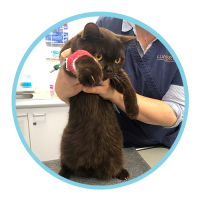
We provide trusted, science-backed FIP treatment to give your cat the chance it deserves—because every purr matters.
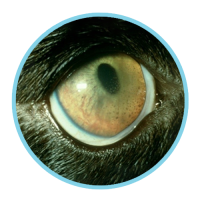
We provide trusted, science-backed FIP treatment to give your cat the chance it deserves—because every purr matters.
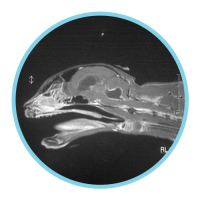
We provide trusted, science-backed FIP treatment to give your cat the chance it deserves—because every purr matters.
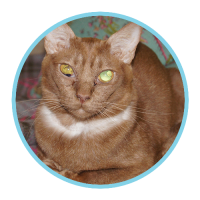
We provide trusted, science-backed FIP treatment to give your cat the chance it deserves—because every purr matters.
Treatment for Feline Infectious Peritonitis (FIP)
How is Feline Infectious Peritonitis (FIP) in cats treated?
In the past, there was no effective treatment for FIP but thankfully times have changed and there are antiviral medications available with good results in treating FIP. These drugs are legally available in many countries and have been shown to be safe and effective (through clinical studies), although they can be expensive.
Current recommendations are to treat for 12 weeks to allow full clearance of the disease. This can seem a long time but gives cats the best chance of recovery. It may be that shorter courses can be recommended in the future but for now 12 weeks of treatment is required. Different types of FIP require different amounts (dosages) of antiviral medication, FIP cats showing neurological and/or ocular signs being treated with higher dosages. However, there is variation in how cats respond, and adjustments may be needed during the treatment period. If a cat is not responding as expected, the amount of antiviral medication may need to be increased.
Therapeutic drug:
- NeoFipronis® (Pronidesivir): Approved oral FIP treatment with fast absorption and proven results. Globally available.
The First Officially Approved Oral Treatment for FIP in Cats

NeoFipronis® (Pronidesivir) is the world’s first officially approved oral medication developed specifically for the treatment of Feline Infectious Peritonitis (FIP). Backed by clinical research, it offers a safe, effective, and non-invasive solution for veterinarians and cat owners worldwide.
- Scientifically proven and developed by global FIP experts
- Effective for all FIP types: wet, dry, neurological, and ocular
- Oral formulation — no injections, less stress for cats
- Precise dosing, easy at-home administration
- Trusted by veterinarians, supported by real-world recovery cases
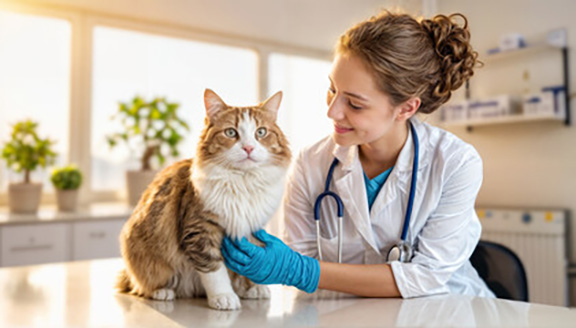
The Treatment You Trust. The Quality Your Cat Deserves.
With NeoFipronis® (Pronidesivir), you’re choosing a scientifically proven FIP treatment backed by veterinary expertise and strict quality control. Every tablet reflects our commitment to safety, consistency, and care.
In a field where accuracy can mean life or death, NeoFipronis® raises the standard. From formulation to packaging, we follow rigorous protocols to ensure every dose delivers what your cat needs — no compromises, no shortcuts.
Why NeoFipronis:
- First officially approved oral treatment for FIP
- Manufactured under strict veterinary standards
- Trusted by vets, backed by science
- Accurate dosage, easy and safe to administer
- Multiple quality checks for consistent efficacy
- Globally compliant and internationally available
Pronidesivir — your trusted solution for FIP treatment.